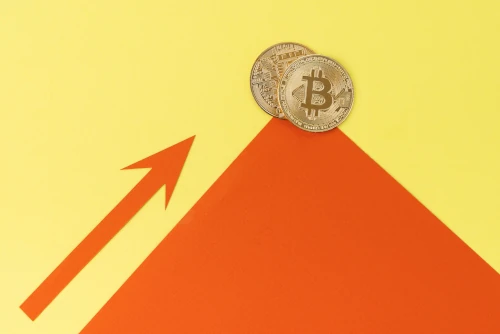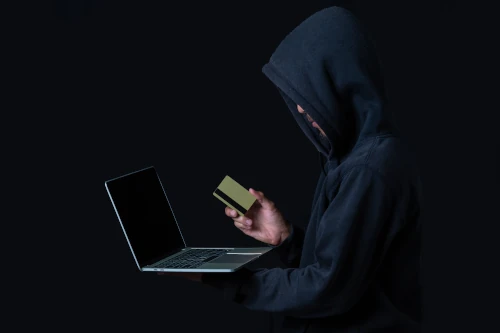Introduction
In recent years, the rise of cryptocurrencies has captivated the financial world, offering promises cryptocurrency bargains with huge returns and revolutionizing traditional banking systems.
However, this burgeoning industry also has a dark side, with numerous cryptocurrency scams and fraudulent activities targeting unsuspecting investors. It is essential for individuals to understand the potential risks and pitfalls associated with cryptocurrency investments to protect themselves and make informed decisions.
In this article, I will explore the common scams and pitfalls in the cryptocurrency market and provide valuable tips to help you navigate this complex landscape.
Is the cryptocurrency market full of bargains or a scams?
Ponzi Schemes are Everywhere

One of the most prevalent scams in the cryptocurrency world is the Ponzi scheme.
These scams entice investors with the promise of guaranteed high returns in a short period. They often rely on recruiting new members to sustain their operations, leading to a pyramid-like structure.
However, these promises of quick wealth are nothing more than smoke and mirrors. In reality, Ponzi schemes rely on the investments of new members to pay off older members, creating a cycle of deception that eventually collapses.
To avoid falling victim to a Ponzi scheme, it is crucial to exercise caution and skepticism.
Here are some key tips to protect yourself:
1 Be suspicious of any investment that promises guaranteed returns. Legitimate investments always carry some level of risk, and anyone claiming otherwise is likely not being honest. Not every investment are cryptocurrency bargains.
2 Understand the business model behind the investment. If you cannot comprehend how an investment generates profits, it should raise a red flag.
3 Ponzi schemes heavily rely on recruiting new members. If you feel pressured to bring in more people to make money, it might be a Ponzi scheme. Look out for referral programs that encourage members to earn money by bringing in new customers.
4 Before investing, check if the company is registered with your country’s financial regulators and if any complaints or actions have been taken against it.
5 Never invest more than you can afford to lose. Be cautious and do your due diligence before committing your hard-earned money.
Cloud Mining and Cryptocurrency Bargains

Cloud mining is a popular way for individuals to participate in cryptocurrency mining without the need to purchase and maintain expensive mining equipment.
In this process, individuals rent computing power from remote data centers to mine cryptocurrencies. While cloud mining itself is a legitimate concept, there have been instances of fraudulent schemes in this space.
If you are considering cloud mining, it is crucial to take the following precautions:
1 Research the cloud mining provider thoroughly. Ensure that the website provides transparent information about the mining pool used, the management team, and the mining facilities.
2 Check the contract details. Legitimate cloud mining contracts should clearly state the cost, the amount of processing power you will receive, and other relevant terms. If these details are vague or unclear, exercise caution.
3 Seek advice from independent cloud mining advisors or individuals knowledgeable about cryptocurrency mining.
4 Be wary of promises of high returns or unrealistic profitability. Remember, cryptocurrency mining is a competitive and volatile market.
5 Stay updated with the latest news and developments in the cloud mining industry to make informed decisions.
Are you sure cloud mining is cryptocurrency bargains for you?
Bogus Crypto Exchanges for Trading

Cryptocurrency exchanges are platforms that enable individuals to buy, sell, and trade cryptocurrencies.
While most exchanges operate legitimately, there are some that engage in fraudulent activities.
These bogus exchanges often lure users with attractive offers, such as selling cryptocurrencies at bargain prices or with minimal transaction fees. They may also employ deceptive tactics, like the PayPal to BTC exchange ruse.
To avoid falling victim to fake crypto exchanges, consider the following measures:
1 Conduct thorough research before using any Bitcoin exchange. Read reviews from reputable sources and seek opinions from experienced users. Check the exchange’s website for information about the company, including its operating history, physical address, and team members.
2 Verify if the exchange is compliant with the regulations of your country. Many countries require crypto exchanges to be registered and adhere to specific regulations.
3 Be cautious of suspicious links that may lead to fake exchanges. Always double-check the URL of the exchange before logging in.
4 Keep your cryptocurrency holdings in a secure wallet outside of the exchange. This reduces the risk of losing your assets in case of an exchange hack or scam.
Fake Wallets For Storing Crypto

Cryptocurrency wallets are digital tools used to store and manage cryptocurrencies.
While wallets are essential for securely holding cryptocurrencies, there have been instances of fake wallets designed to steal sensitive data or pilfer users’ assets.
To safeguard your cryptocurrency assets from fake wallets, consider the following precautions:
1 Download wallet software only from official websites or reputable app stores. Be cautious of rogue wallets that can only be found in unofficial or unregulated app stores.
2 Enable Multi-Factor Authentication (MFA) for added security. MFA requires users to provide two forms of identification, such as a password and a verification code.
3 Consider using a hardware wallet for storing large amounts of cryptocurrency. These physical devices store your cryptocurrency offline, reducing the risk of online attacks.
4 Keep your devices and applications up to date. Regularly update your wallet software, operating system, and security software to protect against potential vulnerabilities.
5 Before downloading a Bitcoin wallet application, scrutinize it for potentially harmful code. Utilize platforms like VirusTotal to scan software binaries for recognized threats. If the wallet is open-source, review its code on platforms like GitHub to assess its security and functionality.
6 Backup your wallet using the provided seed phrase. This phrase acts as a recovery mechanism in case you lose access to your wallet. Keep the seed phrase safe and secure.
Phishing Data and Cryptocurrency Bargains

Phishing is a widespread scam that attempts to trick individuals into revealing their personal information, such as login credentials or private keys. In the context of cryptocurrencies, phishing attacks often target users of crypto exchanges or wallets.
To protect yourself from phishing attacks, follow these essential steps:
1 Avoid clicking on links within emails. Deceptive links may appear authentic but can redirect you to hacker-controlled sites. Instead, type URLs directly into your browser or use bookmarked links.
2 Exercise caution with email attachments, as they can be used to distribute malicious software.
3 Verify the email address or phone number of the sender before responding to unsolicited communications. Use contact details provided on the legitimate website of the company in question.
4 Educate yourself about common phishing tactics and stay vigilant. Be wary of unsolicited emails or messages requesting sensitive information.
5 Regularly update your devices and software to ensure you have the latest security patches.
Cryptocurrency bargains can very quick switch into stealing your data, cryptocurrency and money.
Crypto Trading Hazards

With the growth of cryptocurrencies, in-person meetings for crypto transactions have become more common.
However, these face-to-face exchanges come with their own set of risks and dangers.
If you engage in in-person crypto trading, consider the following precautions:
1 Avoid in-person meetings with strangers, especially when carrying large amounts of money. Opt for public places like coffee shops or shopping centers for transactions, as they are generally safer due to crowds and surveillance cameras.
2 Inform others about your whereabouts and the purpose of the meeting.
3 If possible, bring a friend or a trusted individual along with you.
4 Utilize reliable peer-to-peer platforms that offer features like blind escrow to protect both buyers and sellers.
5 Use reputation and feedback systems available on trading platforms to evaluate the trustworthiness of potential trading partners. Clarify all trading specifics using encrypted chat before proceeding with any transactions.
6 Always ensure that the other party shows you the agreed sum of money before sending any cryptocurrencies.
7 Trust your instincts. If something feels off or suspicious, it’s better to walk away and miss out on a trade than risk your safety.
There are hundreds cryptocurrency bargains what are indeed cryptocurrency scams.
Pump-and-Dump Schemes All Around

Pump-and-dump schemes are a type of market manipulation where the price of a cryptocurrency is artificially inflated through coordinated buying and spreading of misleading positive news.
Once the price reaches a peak, the manipulators sell their holdings, causing a rapid price drop and leaving other investors with significant losses.
To protect yourself from pump-and-dump schemes, consider the following strategies:
1 Don’t rush into investments based on hype or pressure. Avoid making impulsive decisions driven by the fear of missing out (FOMO).
2 Diversify your investments across different assets. Spreading your investments can help mitigate the impact of a bad investment.
3 Be skeptical of “get rich quick” promises – cryptocurrency bargains can take some time as well. If something sounds too good to be true, it probably is.
4 Set stop-loss orders to limit potential losses if the price of a cryptocurrency suddenly crashes.
5 Stay informed about the market and conduct thorough research before making investment decisions. Look for reliable sources of information and consult with experienced investors.
Fake Airdrops as Cryptocurrency Bargains

Fake airdrops are a common type of cryptocurrency scam where fraudsters promise free coins to lure unsuspecting victims.
These scams often require participants to provide sensitive information or make a payment to receive their supposed reward. However, after fulfilling the conditions, victims receive nothing in return. Watch out, because then you great cryptocurrency bargains will change into nightmares.
To protect yourself from fake airdrops, follow these guidelines:
1 Confirm that the airdrop is from a legitimate and reputable company. Check their official website and social media channels for announcements.
2 Be cautious of airdrops that ask for your private keys. Your private key is your most sensitive information, and you should never share it with anyone.
3 Be wary of excessive requests for personal information. Consider any unreasonable demands as potential red flags.
4 If an airdrop requires you to send cryptocurrency to receive tokens, it is likely a scam. Legitimate airdrops do not require a purchase.
Cryptojacking Your Crypto

Cryptojacking is a form of cybercrime where hackers covertly use other people’s computing resources to mine cryptocurrencies.
They accomplish this by infecting websites or individuals’ computers with malicious code. Cryptojacking can lead to degraded system performance, increased power consumption, and even hardware damage.
To protect yourself from cryptojacking attacks, consider these preventive measures:
1 Use reliable and powerful antivirus software that includes features to detect and block cryptojacking scripts.
2 Install browser extensions that can help prevent cryptojacking scripts from running in your browser.
3 Regularly monitor your system’s performance. Unusually high CPU usage might indicate a cryptojacking attack.
4 Keep your operating system and all software up to date to ensure you have the latest security patches.
Cryptocurrency Bargains or Scams?
I have deliberately listed many of the dangers you may encounter when investing and trading cryptocurrencies.
If something seems like too good an offer, it’s usually a scam. In the previous subsections, you could read how to avoid many dangers related to investing in cryptocurrencies.
So the question arises: “are cryptocurrencies just a scam?”
The answer is obvious. There are many cases where cryptocurrencies are a great investment, but you just have to be careful.
As an author, I still maintain that the cryptocurrency market is full of opportunities and it is worth taking advantage of them.
Conclusion
As the cryptocurrency industry continues to grow and evolve, it is essential for investors to stay informed and vigilant.
By understanding the common scams and pitfalls in the cryptocurrency market, individuals can protect themselves from fraudulent activities and make more informed investment decisions.
Remember to exercise caution when encountering cryptocurrency bargains that promise guaranteed returns or seem too good to be true.

Leave a Reply
You must be logged in to post a comment.